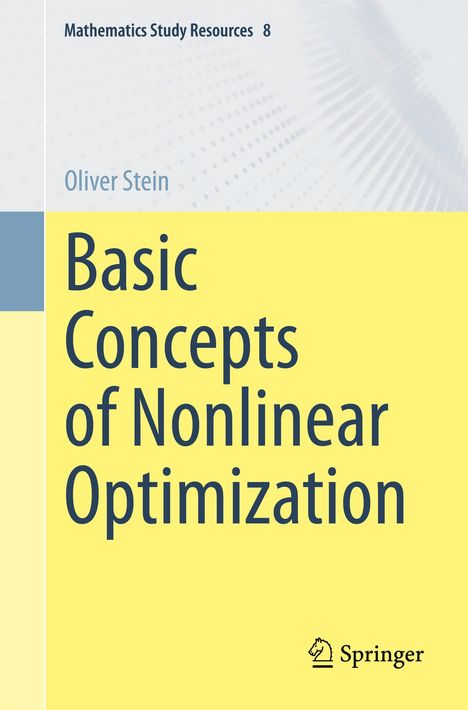Oliver Stein: Basic Concepts of Nonlinear Optimization, Kartoniert / Broschiert
Basic Concepts of Nonlinear Optimization
(soweit verfügbar beim Lieferanten)
- Verlag:
- Springer Berlin Heidelberg, 09/2024
- Einband:
- Kartoniert / Broschiert, Paperback
- Sprache:
- Englisch
- ISBN-13:
- 9783662697405
- Artikelnummer:
- 11971975
- Umfang:
- 224 Seiten
- Nummer der Auflage:
- 2024
- Ausgabe:
- 2024
- Gewicht:
- 347 g
- Maße:
- 235 x 155 mm
- Stärke:
- 13 mm
- Erscheinungstermin:
- 17.9.2024
- Hinweis
-
Achtung: Artikel ist nicht in deutscher Sprache!
Klappentext
This textbook is an introduction to nonlinear optimization, which treats mathematical concepts stringently on the one hand, but also motivates them in great detail and illustrates them with 42 figures. Therefore, the book is not only aimed at mathematicians, but also at natural scientists, engineers, and economists who want to understand and apply mathematically sound methods in their field.
With just over two hundred pages, the book offers sufficient flexibility to serve as a foundation for various types of lectures on nonlinear optimization. Many geometric approaches for understanding both optimality conditions and numerical methods introduce a new perspective, enriching the existing literature on optimization. This is particularly evident in the detailed treatment of issues arising from different functional descriptions of the same geometry of feasible sets, and the thus motivated introduction of constraint qualifications for deriving derivative-based optimality conditions.
This book is the English translation of the second edition of ¿Grundzüge der Nichtlinearen Optimierung¿ (Springer, 2021) written in German. The translation was done with the help of artificial intelligence. A subsequent revision was performed by the author to further refine the work and to ensure that the translation is appropriate concerning content and scientific correctness. It may, however, read stylistically different from a conventional translation.
Biografie
Oliver Stein, Habilitation at RWTH Aachen University, Venia Legendi for Mathematics.


